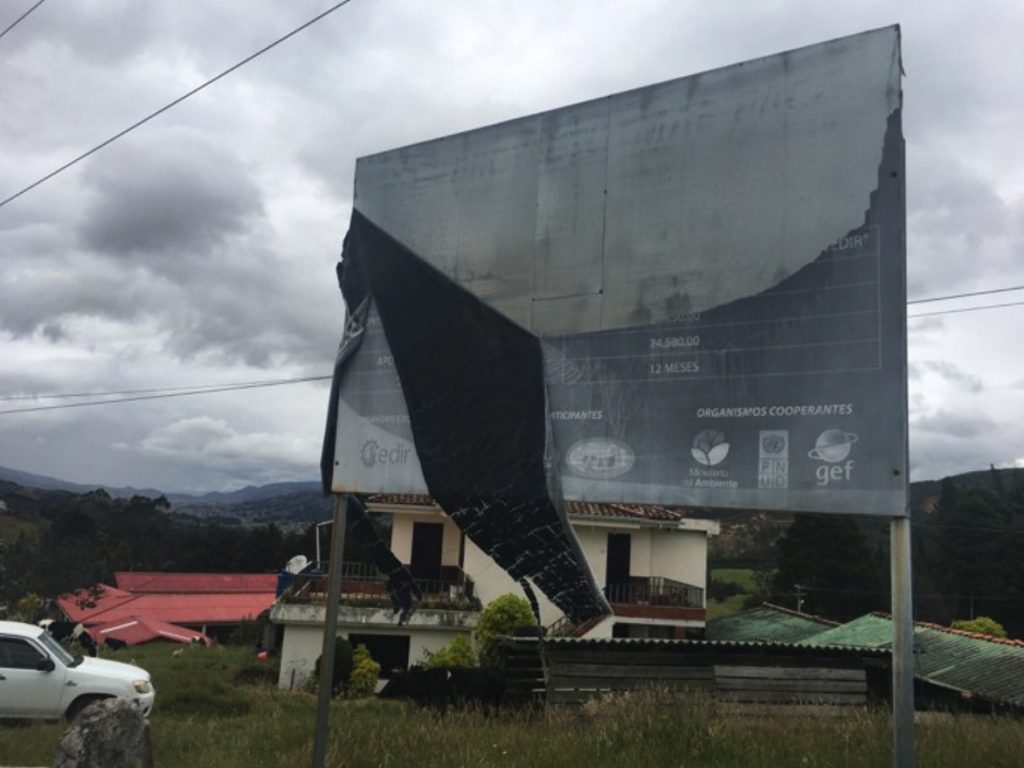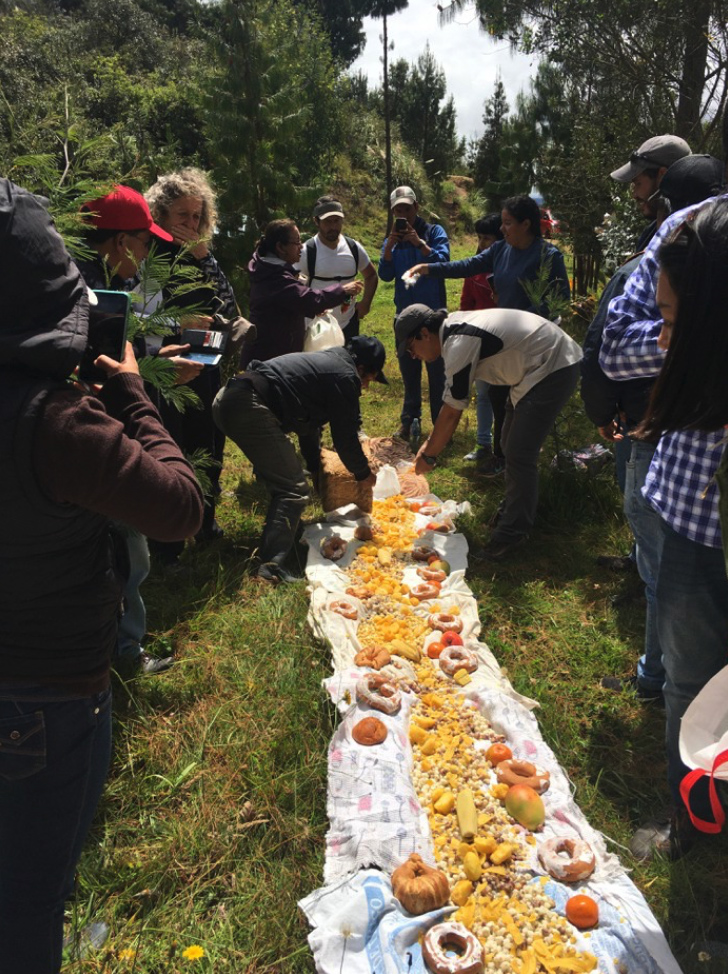Megan Mills-Novoa 2019 Field Report
Megan Mills-Novoa, PhD Candidate, School of Geography, University of Arizona
Project: After Adaptation: A Multi-Scalar Study of Climate Change Adaptation Projects in Ecuador
My research focuses on the afterlife of climate change adaptation projects in the Ecuadorian highlands. Since 2001, climate funds in partnership with international agencies and governments have been funding and implementing the first generation of climate change adaptation projects. As the global community invests more in adaptation projects, it is critical that we learn from this first generation of projects. Ecuador is an ideal case study as it has been the site of multiple ongoing and completed climate change adaptation projects that were funded and implemented by the multi-lateral climate funds and international organizations shaping climate change adaptation efforts across the Global South.

In particular, I study 1) how these projects live on and inform future projects in the institutions that implement them and 2) how they are rejected, remade, and/sustained by the communities that receive them. Little is known about the long-term impacts of climate change adaption projects. By studying the enduring impacts of climate change adaption projects, I seek to inform the design of the future adaptation efforts.
With the support of the CLAG, I am conducted fieldwork from August 2019 to December 2019. This is my second fieldwork phase. In total,I have conducted 72 semi-structured interviews with adaptation professionals and community leaders about climate change adaptation projects across Ecuador. Community leaders have provided insight into the complexities of defining success in adaptation projects. I also collected crucial (and hard to access) adaptation project documents for a systematic review from the Ministry of the Environment, consultants, and academics who have participated in climate change adaptation projects.
For this phase I have focused on researching the grounded, enduring impacts of a particular climate change adaptation project, “Adaptation to Climate Change through Effective Water Governance in Ecuador” (PACC). In 2009, PACC was funded by the Global Environment Facility’s Special Climate Change Fund. This 3.5-million-dollar project was implemented by the United Nations Development Program and became a model for regional climate change adaptation.

To study PACC, I am led a five-person team to conduct quantitative surveys in communities that formerly participated in PACC. This survey tool is providing us insight into the way in which communities have continued to use implemented climate change measures (or not) and why. I am also conducting extended interviews with local leaders of irrigation associations and parish governments during which we visit the site of project interventions and talk at length about the history of the community, the interventions of PACC, and how things have changed (or not) since the implementation of PACC. My research team includes students from Wageningen University, Universidad de Cuenca, Technical University of Munich, and Universidad Andina Simón Bolívar. These students are all developing complimentary master’s and undergraduate theses with my mentorship and logistical support.
Based on my ongoing research, my preliminary findings are that adaptation in Ecuador is being managed across highly fragmented institutions with a low capacity for knowledge sharing over time. Additionally, technical project staff who have close relationships with communities are subject to a high-level of labor precarity, jeopardizing the sustainability of adaptation projects.
Additionally, community involvement in project design and implementation is limited to confined, formalized participation spaces. However, my site visits illustrate that over time adaptation interventions have become important socio-political tools for communities in solidifying local control and autonomy over water resources management.
CLAG’s support was crucial to the success of this project. THANK YOU!
Please see the full report for more details.


















